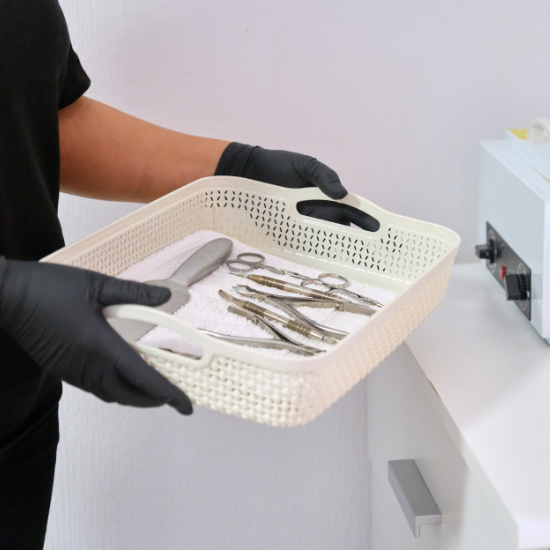What are the Duties of a Sterile Processing Technician?
Edited by: Hank Balch, Founder and President of Beyond Clean | August 2022
Do you know what a Sterile Processing technician does? Or even what the role of Sterile Processing is in the healthcare system? There’s a good chance you’ve either never heard of it or you’ve never considered what they do. Sterile Processing technicians are also sometimes referred to by other names (or have significant overlap with other jobs), which may make it more challenging to know what it is that they do! Sterile processing technicians may have job descriptions or titles that include phrases like ‘medical equipment preparer’ or ‘central service technician.’ However, all of these positions are similar to one another and frequently combined into one occupation.
In short, a Sterile Processing technician is an expert on the cleaning, sterilization, and quality of medical instrumentation's. They are most often found working in hospitals, but can be found in other medical offices or outpatient clinics.

What do Sterile Processing Technicians Do?
There are many job duties associated with working in Sterile Processing! They may include:
- Decontaminating surgical equipment used in the Operating Room
- Cleaning and sterilizing medical instrumentation
- Preparing and packaging the correct instruments for specific procedures
- Keeping tools and equipment organized and easily accessible
- Document reprocessing steps to ensure safety and compliance
- Distributing and tracking instruments to other locations
A Sterile Processing technician must be comfortable and familiar with many different instruments and procedures. They will be expected to not only keep instruments clean and safe, but they will also be expected to keep a hazard-free work space.
What Does a Day in the Life of a SPT Look Like?
Working as a Sterile Processing technician will look different depending on where you work! However, some skills and tasks will look similar across a wide range of job locations and descriptions.
- Assessing Incoming Instruments and Following Proper Procedure: It is absolutely vital to know what instruments you will be handling and sterilizing. Every tool that is received needs to be handled with the proper procedure. This may require different cleaning techniques, chemicals, or decontamination practices!
- Preparing Instruments for the Providers on Your Medical Care Team: When patients come to a surgery center or operating room, the provider or surgeon will know how to treat them. They will need you to help them be prepared for the upcoming surgeries by cleaning, testing, assembling, packaging, sterilizing, and distributing instrument trays.
- Problem Solving New or Complicated Instruments or Scenarios: As the medical instrument expert, it will be your job to stay abreast of changing technologies and new instrumentation within healthcare. Different reprocessing equipment, tools, and chemicals may be required as instruments continue to grow more and more complex.
Depending on where you work, you may also have additional responsibilities as a Sterile Processing technician! Other, less common, job duties may be:
- Cleaning or sterilizing lab equipment
- Supporting the cleaning and disinfection of ultrasound and radiology equipment
- Connecting with vendors to receive trainings
- Organizing and building new surgical instrument tray configurations
What Else Do I Need to Know about Sterile Processing?
If you haven’t considered a career in Sterile Processing before, you may still have questions about what they do! Here are a few more things to know about the Sterile Processing career.
You may not realize how many tools are required for a surgeon or provider to correctly perform a surgery, but it can take many! Instruments are loaded onto trays that a surgeon will use during the course of a procedure. These trays all must be labeled and loaded correctly, so having an eye for attention to detail is a must.
Some Sterile Processing technicians work in surgery centers that specialize in a few procedures and perform them regularly. Others work in hospitals with large emergency departments where no two procedures are identical! Working in one location or the other can make a huge impact on how intense your job is.
A career as a Sterile Processing technician can be exciting and rewarding, but being properly trained is essential to a successful career. Get started with your training today with U.S. Career Institutes Online Sterile Processing training program.
